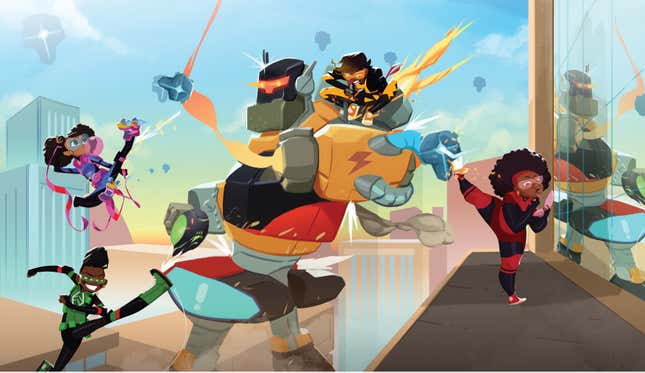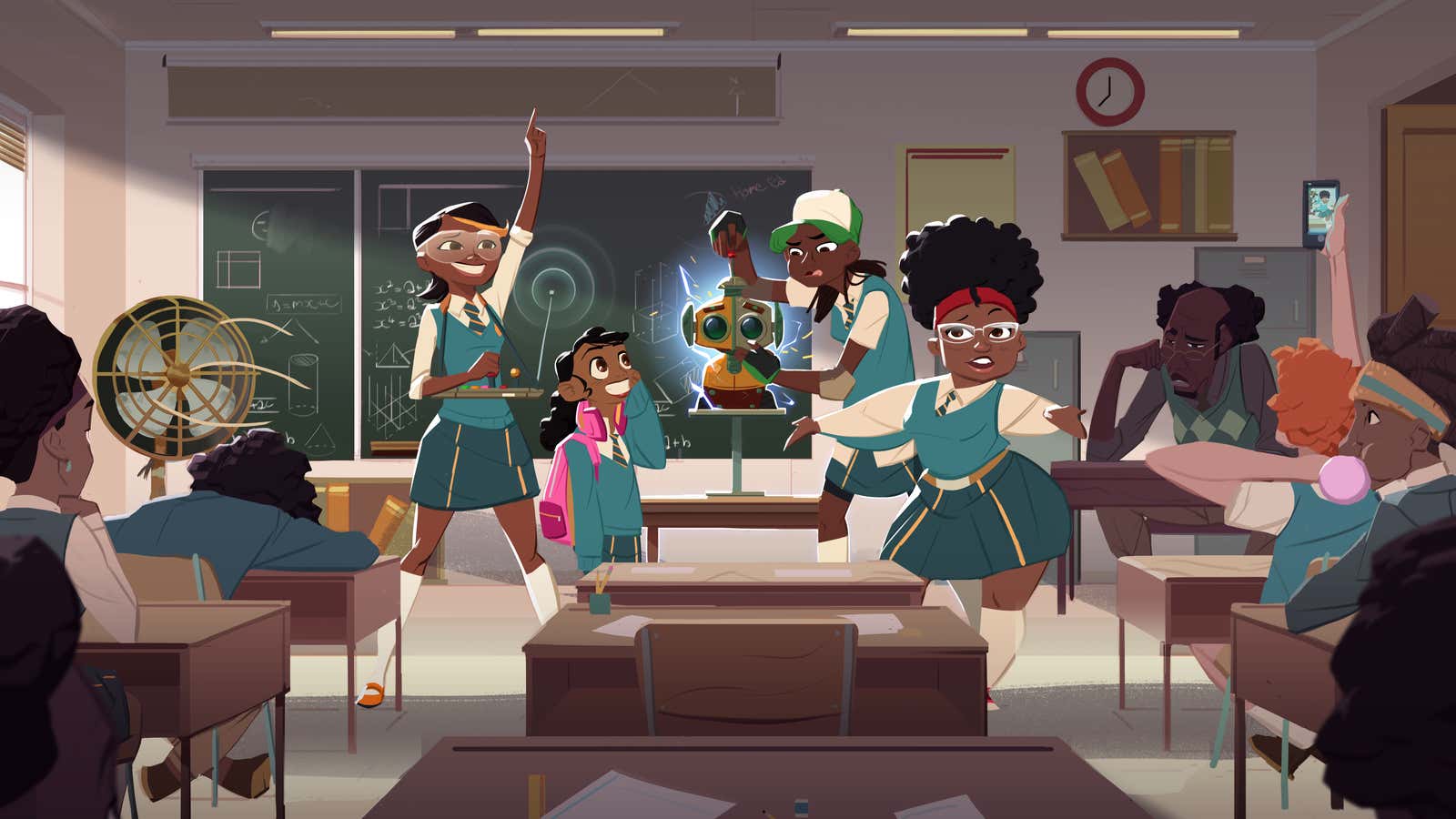While animation productions are fun to watch, it can be hard for South African students to imagine producing them as a career move. But Triggerfish, an award-winning animation studio based in Cape Town, is looking to change that.
The studio has partnered with the Goethe-Institut and the German Federal Ministry of Economic Cooperation and Development to launch “Triggerfish Academy”, a free digital learning platform which guides students into picking up the craft.
The studio’s latest move follows prior Triggerfish initiatives, including a Story Lab partnership with Disney in 2015, which invited aspiring animators throughout the continent to submit their ideas for development and mentorship.
Since then, the popularity of Marvel’s Black Panther, which was set in a fictional African country, has created a significant rise in interest for African content, says Stuart Forrest, Triggerfish’s chief execuitve. He credits the movie for changing “perceptions of what an all-black cast would do with money and funding.”
It has been an exciting time for African storytellers, including Triggerfish. Earlier this year, Netflix picked up its animation about an all-girl group of Zambian spies, Mama K’s Team 4, as its first children’s animation from Africa. Over the past two years, the company has produced award-winning African-children films, received an Oscar nomination, and has been getting more offers from studios to develop African stories.

The problem is, there has not been enough local talent to keep up with demand, says Forrest. “We have a shortage of animators we can use, so we are going to Europe and finding animators there,” he said. The outsourcing is especially a loss for South Africa, a country with a 55% youth unemployment rate.
For Triggerfish, the online academy, which can also be streamed on YouTube, is one of the ways they hope to tackle this issue.
The twenty-five video online course touches on assumptions about careers in animation—including myths like animators only work in cartoons—shows students how to animate with a smartphone, shares tricks on how to persuade parents on an animation career, and introduces principles in storytelling.
Another component of the academy includes a Facebook community group, where aspiring animators can get feedback on their work from Triggerfish team members. The company also plans to stream selected animations from students at different animation festivals in Cape Town and Johannesburg in the coming months.
For South African students with artistic passions, platforms like these are one of the few ways they can learn to build a viable career in artsy fields like animation, says Forrest.
“This is a career, it’s not only a dream.”
Sign up to the Quartz Africa Weekly Brief here for news and analysis on African business, tech and innovation in your inbox
